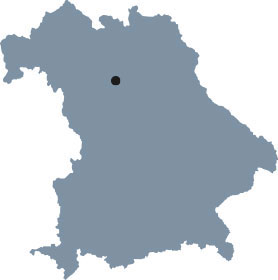Standards of Decision-Making Across Cultures
“Standards of Decision-Making Across Cultures” (SDAC) is an interdisciplinary study program in cultural studies with an emphasis on East Asian societies. It allows students to acquire profound academic and methodological knowledge, as well as additional key skills regarding decision-making processes in East Asia. This non-consecutive Elite Graduate Program draws from the fields of anthropology, philosophy, political science, economics, history, and Chinese studies.
| Degree | Master of Arts |
| Duration of study | Four Semesters |
| Place of study | Erlangen |
| Admission requirements | Bachelor’s degree, master’s degree, diploma, Magister or state examination in a study that focusses on philology, social sciences, historical sciences, pedagogy, philosophy, religious studies, ethnology, economic sciences, law, psychology or medical science |
| Language of instruction | English |
| Application deadline | March 15th, July 15th |
| Begin of studies | Winter semester |
| Head | Prof. Dr. Dominik Müller Prof. Dr. Jean-Baptiste Pettier |
| Coordinator | Jessica Wengel Contact the coordinator |
| Further informationen | Website Standards of Decision-Making Across Cultures |
Students acquire valuable academic and methodological knowledge, as well as additional key skills regarding decision-making processes in East Asia and beyond.Over the course of the degree program, students receive insight into the processes of decision-making, e.g. in cultural, political, and entrepreneurial settings.
They develop a new cross-cultural perspective on decision-making processes, utilize their knowledge in an interdisciplinary context, learn to approach research questions from an academic perspective and to cultivate their independent thinking.
These qualities eventually enable them to develop intercultural sensitivities and to facilitate cross-cultural decision-making processes.


Insights into decision-making processes in different cultures are impossible without recognizing that they are grounded in different forms of rationality.
Prof. Dr. Michael Lackner
The acquired knowledge from the disciplines of anthropology, philosophy, political science, economics, history, and Chinese studies will enable them to gain skills in the fields of communication and critical thinking, as well as to work in an independent, solution-oriented, critical, and analytical manner in various professional circumstances requiring expertise from humanities, area studies, and social sciences.
As a non-consecutive program, the SDAC opens perspectives on both academic and non-academic professions. For example, outstanding students can receive support from faculty members to apply for the Ph.D. program in related fields.
The proximity of our program to the IKGF offers a favorable environment for academic networking and research. Depending on their background and interests, students may also qualify for internships and job positions in a variety of fields related to their chosen orientation in the program. In particular, they would be eligible to work in an international environment where they could apply their intercultural sensitivity, interdisciplinary academic expertise, and communication proficiency.
Study Abroad and Additional Activities
Students are required to spend their third semester at Beijing University at the European Centre for Chinese Studies. As one of China’s most prestigious universities, Beijing University is home to a great variety of study subjects and research fields. This is reflected in the teaching provided by the respective institutions on campus.
Although most classes are not accessible to exchange students, the ECCS will prepare a list of classes for every term. It will comprise a variety of courses with different subjects (mainly in English and mainly from the fields of humanities and social sciences) for students to choose from. During their stay at the European Centre for Chinese Studies (ECCS) in Beijing, graduates learn to apply their theoretical knowledge from the first phase of the degree program to academic and everyday situations in China.


